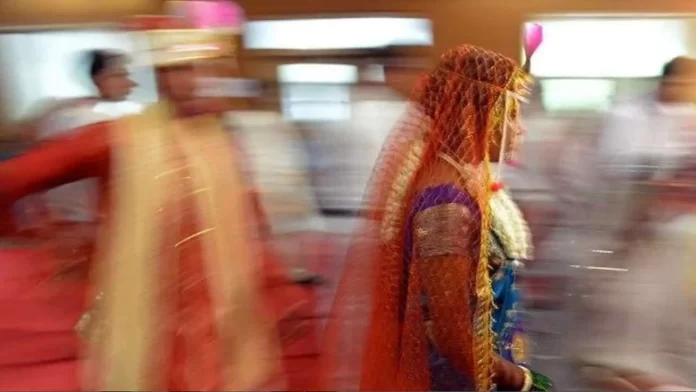The Kerala High Court has clearly said that while cohabitation for years may raise the presumption of marriage, it is not an irrebuttable one, especially when one of the partners is already married
By Sanjay Raman Sinha
In a recent verdict which has affirmed the monogamy provisions of the Hindu Marriage Act, the Kerala High Court held that though “continuous cohabitation for a number of years may raise the presumption of marriage, the said presumption is not an irrebuttable one.” One of the factors that rebuts the presumption is the “subsistence of another marriage”. This essentially means that if a marriage is valid, then another marriage can’t be legally consummated. The verdict was passed by a bench of Justice Anu Sivaraman and Justice C Pratheep Kumar.
The dispute centred around two women, the first respondent and first appellant, who sought legal heirship certificates for the family pension of their deceased husband. The Family Court ruled in favour of the 1st respondent, declaring her the legally wedded wife. The 1st respondent had argued that the deceased married her on 27.4.1966 through religious rites, while the 1st appellant claimed the marriage date was 28.3.1970. That is, the second marriage happened whilst the first one was legally intact.
The key issue before the Court was whether cohabitation during an existing marriage could be considered a valid marriage. The bench ruled that “from the evidence on record, it is proved that on April 27, 1966, Ramakrishnan Nambiar married the 1st respondent, and during the subsistence of the above marriage, he is alleged to have married the 1st appellant. The second marriage with the 1st appellant is void in view of Section 5(i) r/w Section 11 of the Hindu Marriage Act”.
Various other judgments have spoken about the ramifications of dual co-habitation. In Leelamma (supra), a single bench of the Supreme Court held: “…….In a case where the alleged second marriage is disputed, long co-habitation as man and wife, even if true, cannot come to the rescue of the plaintiff to contend for the position that a valid marriage has to be presumed.”
In Reema Aggarwal (supra), the apex court held that “the offence under Section 498A IPC applies even in a case where the marriage is not valid.” In Jinia Keotin case (supra), a single judge of the Supreme Court held that the “exchange of garlands or taking one or two steps alone are not sufficient for solemnization of a valid marriage”.
The Hindu Marriage Act, 1955, imposes monogamy and makes polygamy an offence. Bigamy or having more than one wife, while legally married to one woman, is punishable by law. A person intending to marry or re-marry must not have a spouse living at the time of the marriage (or should have the spouse divorced).
Section 5 (1) of the Hindu Marriage Act states that for marriage fulfillment neither party should have a living spouse at the time of the marriage. Moreover, the spouse should be either dead or divorced for the second marriage to be held legally valid.
Section 17 of the Hindu Marriage Act deals with punishment for bigamy. “Any marriage solemnised between two Hindus, including Buddhist, Jaina, or Sikh is void if either party had a husband or wife living at the time of the marriage and is subject to the provisions of Sections 494 and 495 of the Indian Penal Code, 1860.’’
Section 494 holds bigamy by “imprisonment of either description for a term which may extend to seven years, and shall also be liable to fine”.
Section 495 states “if someone commits the offense of marrying again without disclosing their previous marriage to the new spouse, they can be punished with imprisonment for up to ten years and may also be fined”.
Polygamy became illegal in India in 1956 for all citizens except for Muslims, who are permitted to have four wives and for Hindus in Goa. A polygamous Hindu marriage is legally null and void. Technically, bigamy is act of going through a marriage ceremony with one person while being legally married to another. On the other hand, polygamy means having more than one spouse at a time. The Special Marriage Act, as well as Christian and Parsi laws, also outlaw bigamy. Parsis, Christians and Muslims have sanctions on marriage in their personal laws.
Parsi personal laws hold bigamy unlawful. The Parsi Marriage and Divorce Act, 1936, penalises bigamy under Sections 494 and 495 of the IPC. Christian personal laws also outlaw bigamy. The Indian Christian Marriage Act, 1872, prevents Christians from marrying the second time, when the wife or husband from the first marriage is living or nor divorced.
However, a government employee of any religion can’t have more than one spouse without prior departmental sanction, irrespective of whether the second marriage is permissible under the personal law applicable to him.
Polygamy was widespread before personal laws were codified in modern India. It was culturally sanctified as well. Today, despite laws banning it, polygamy persists amongst all religious groups.
The International Institute for Population Sciences had published a study in 2022 on the basis of extensive surveys of derived from data from the National Family Health Survey. The results showed that polygynous marriages was more prevalent among Muslims (1.9%), followed by other religious communities (1.6%), and least prevalent among Hindus (1.3%). There is a decline in polygynous marriages due to increased awareness and education.
At a time when the Uniform Civil Code is being seen as a tool of social equality and when many states have braced themselves for its rollout, polygamy among Muslims faces resistance from rightist forces.


